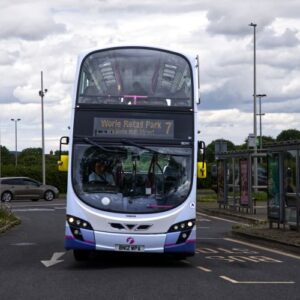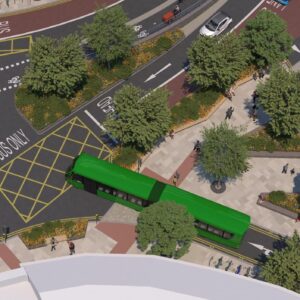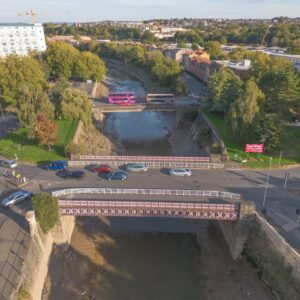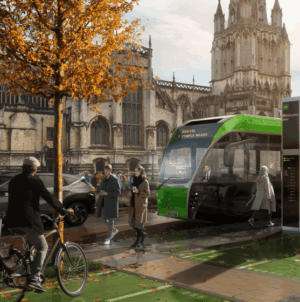
More marked bays, better parking – and Dott’s Yate rental trial extended
A trial of rental e-bikes and e-scooters in Yate and Chipping Sodbury is set to be extended until September.
Segmentation is increasingly recognised as an important tool in delivery of travel behaviour change away from car use. In simple terms, some individuals and groups are more amenable to travel behaviour change than others. Approaches to segmentation have been developed in transport planning from the 1970s. 1 Behaviour change has also been a major focus of health psychology and health promotion and segmentation has been applied through various models such as the Stages of Change model (Pre-contemplation; Contemplation; Preparation; Action; Maintenance). 2
An influential recent paper on segmentation by Anable3 identified six distinct psychographic groups, each with varying degrees of mode switching potential. Each group represents a unique combination of preferences, worldviews and attitudes, indicating that different groups need to be serviced in different ways to optimise the chance of influencing mode choice behaviour.
| Group | Mode switching potential |
|---|---|
| Malcontented Motorists | High moral responsibility to reduce car use |
| Complacent car addicts | Do not see many problems with car use, nor point of reducing it |
| Die hard drivers | Lowest desire to reduce car use, highest psychological car dependency |
| Aspiring environmentalists | Feel the most responsible for environmental problems; don’t enjoy car use |
| Car-less crusaders | Similar to above, although have more romantic view of nature |
| Reluctant riders | Not particularly motivated by environmental issues |
Malcontented motorists who currently exhibit high car use also demonstrate a relatively high intention to change. Anable concluded:
Hence, the segmentation approach illustrates that policy interventions need to be responsive to the different motivations and constraints of various groups (nb strong crossovers with Social Marketing).
A hard copy of this week’s paper will be on my desk for those wanting more details.
1 Heggie, I., 1977 Putting Behavior into Behavioral Models of Travel Choice, Transport Studies Unit Oxford University, TSU ref: 061.
2 Prochaska, J., Marcus, B. 1994 The transtheoretical model: Applications to exercise, in Dishman, R. (ed) Advances in exercise adherence, Champaign.
3 Anable, J. 2008 ‘Complacent Car Addicts’ or ‘Aspiring Environmentalists’? Identifying travel behaviour segments using attitude theory, Transport Policy, 12: 65-78.
2: Segmentation in behaviour change Download pdf PDF approximately 53.99 K
A trial of rental e-bikes and e-scooters in Yate and Chipping Sodbury is set to be extended until September.

A series of upgrades at Worle Interchange will soon begin to improve accessibility, safety and the overall experience for bus...

Initial work that will allow a busy junction in Broadmead to be improved will get underway later this month.

To help plan construction work to not only refurbish Bedminster Bridges, but to transform how people travel over them, investigatory...

The Mayor and council leaders have today unveiled a new vision for the future of transport in the region.